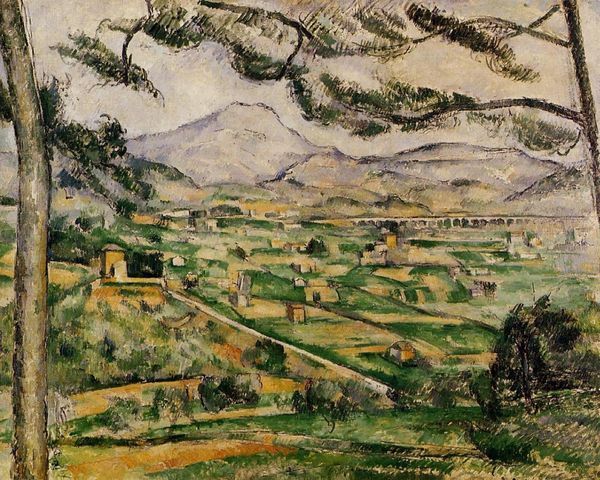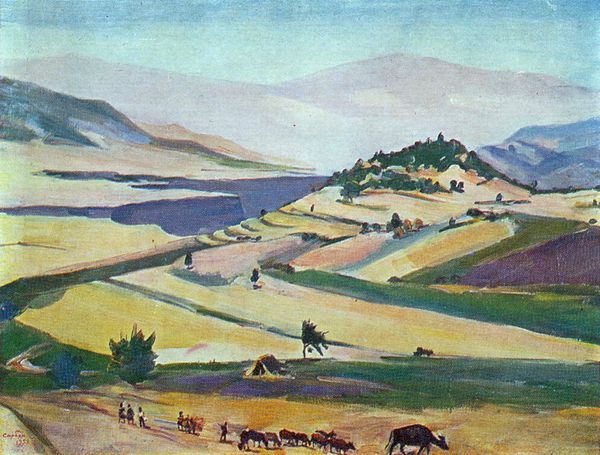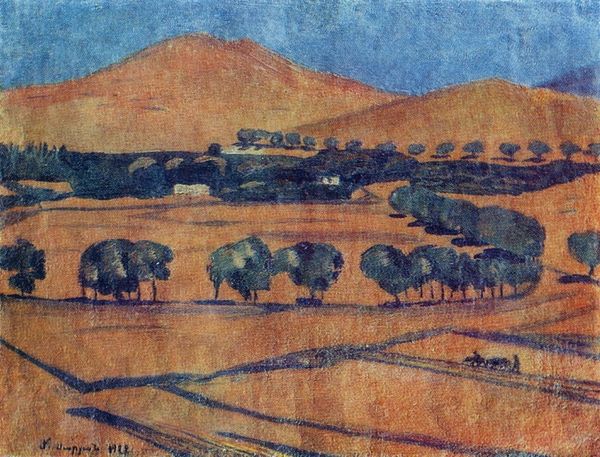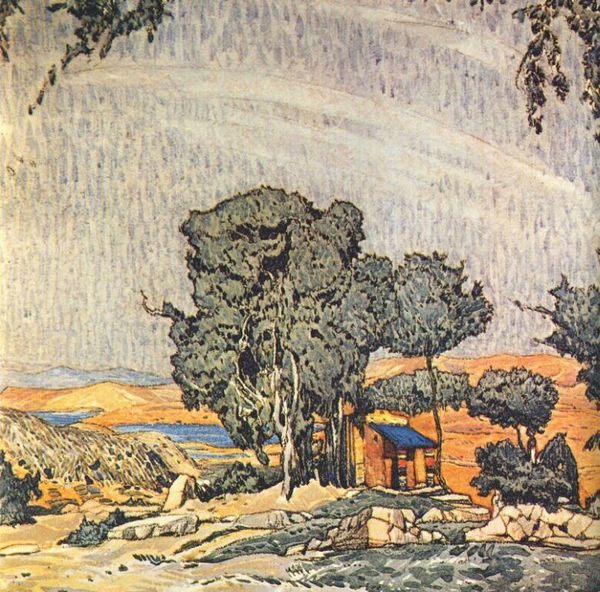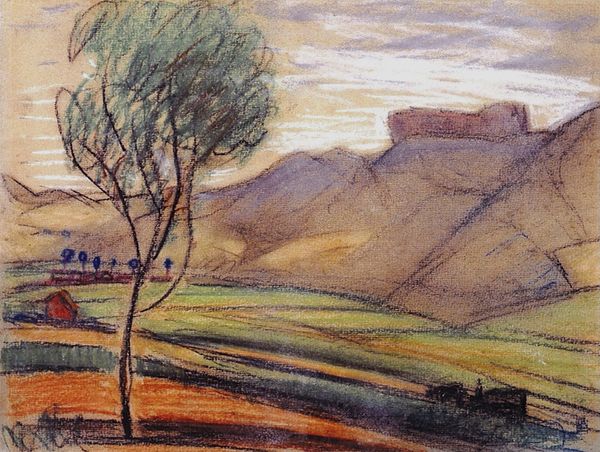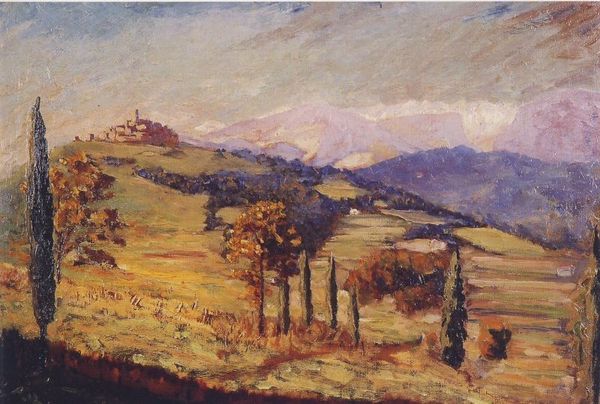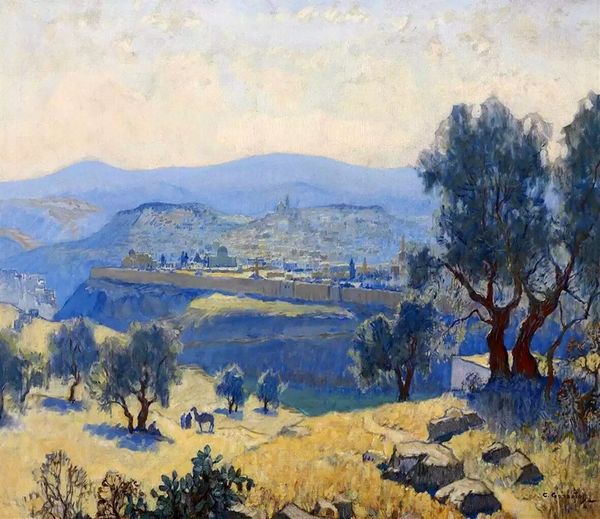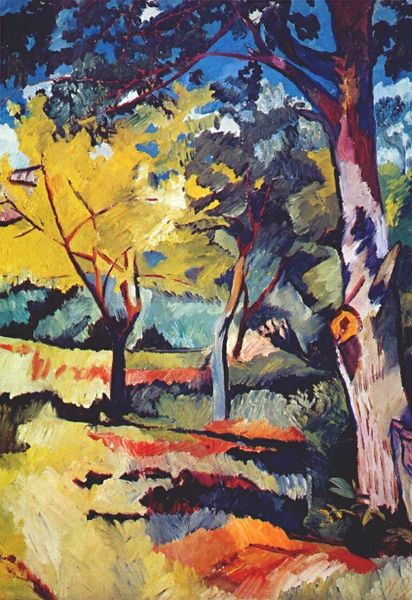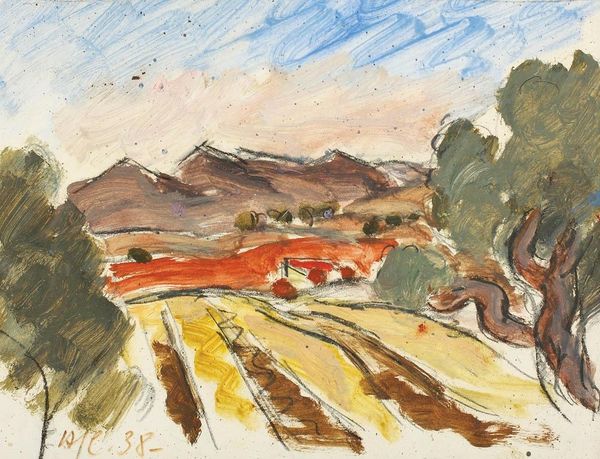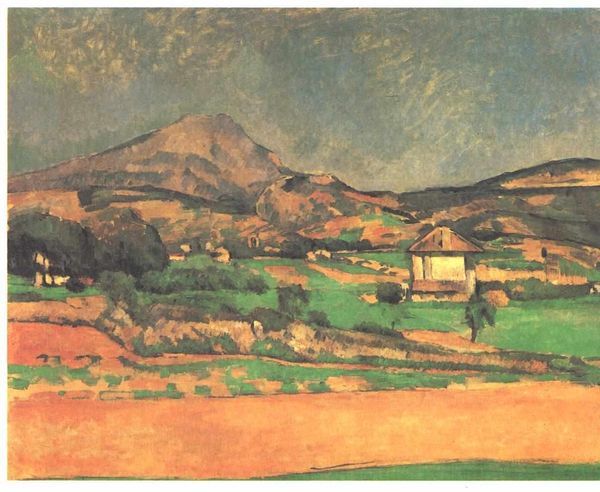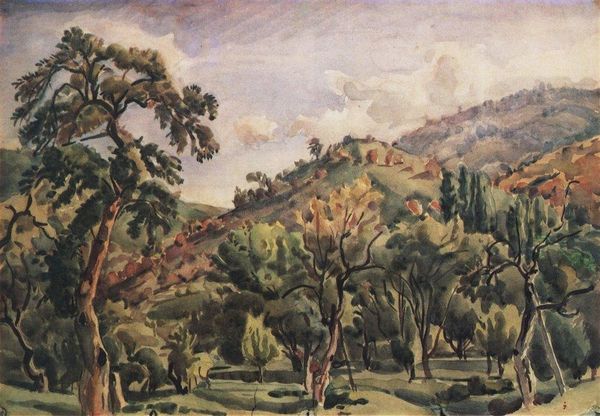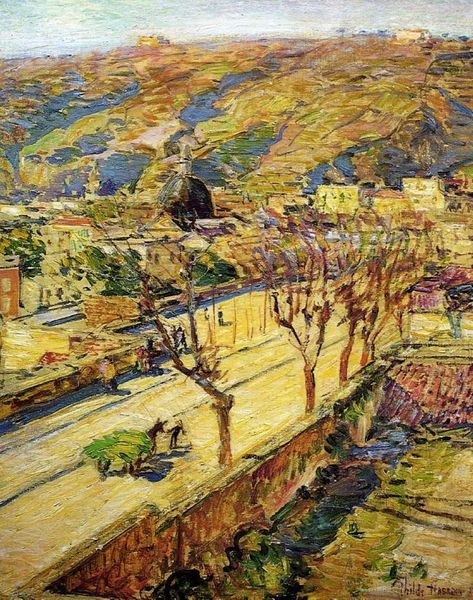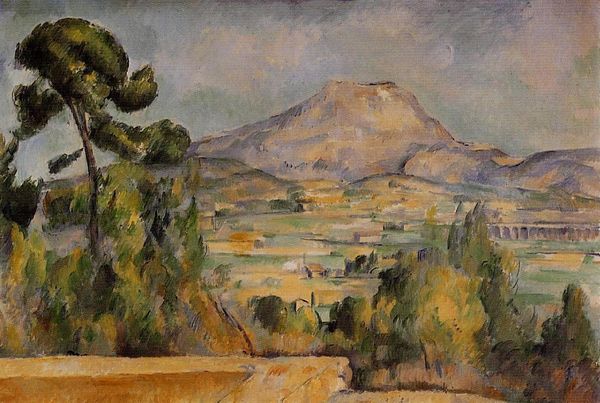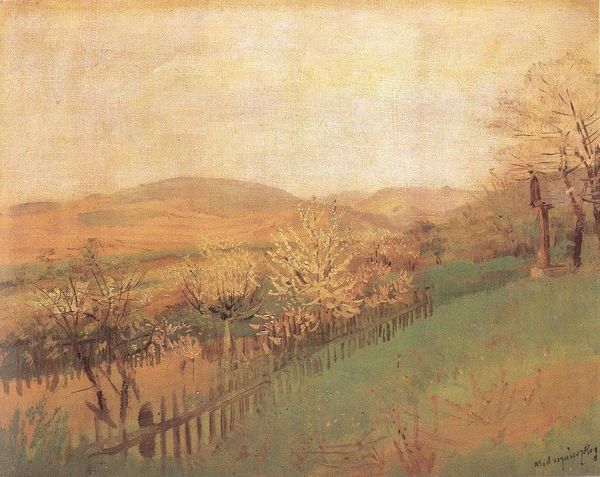
painting, plein-air, oil-paint
#
impressionist
#
painting
#
impressionism
#
plein-air
#
oil-paint
#
landscape
#
impressionist landscape
#
oil painting
#
post-impressionism
Dimensions: 67 x 92 cm
Copyright: Public domain
Editor: Right in front of us, we have Cézanne's "Mont Sainte-Victoire" from 1887, painted with oil. It’s incredible how he captures light and space with these brushstrokes. I find it somewhat calming, yet structurally very interesting. What do you see in this piece from your perspective? Curator: Well, it’s tempting to see just a pretty landscape, but let’s dig a bit deeper. Consider the era – late 19th century, a time of intense industrialization and social upheaval. Cézanne's return to landscape can be seen as a yearning for stability, a rejection of the modern city, or maybe an assertion of regional identity. Does this context give the landscape some extra weight in your opinion? Editor: It does! Thinking about it as a "rejection" is fascinating because it makes it seem more intentional than simply decorative. Like he’s actively choosing this quiet, natural space. Curator: Exactly! And think about the rise of Impressionism and the subsequent turn to Post-Impressionism. Cézanne was critiquing the fleeting impression. He gives more formal structure, exploring how we actually *perceive* space, not just what we *see*. How might his departure be seen as an impact on visual culture? Editor: I guess he's pushing the boundaries of how we represent the world, leading the way for more abstract or subjective perspectives. Thank you, I will never look at landscapes the same way! Curator: That’s exactly it! We often consider that landscape in art can be reflective and forward thinking. By appreciating those historical shifts, we have a more informed approach.
Comments
No comments
Be the first to comment and join the conversation on the ultimate creative platform.
